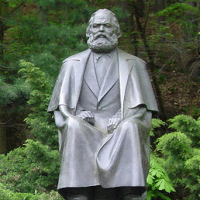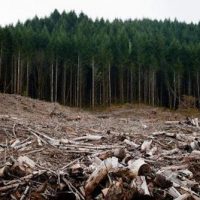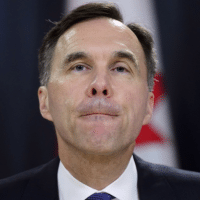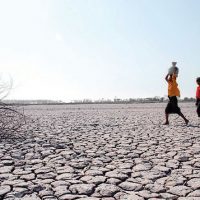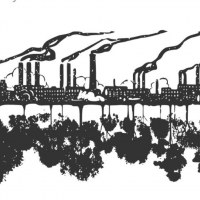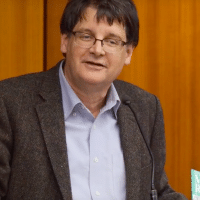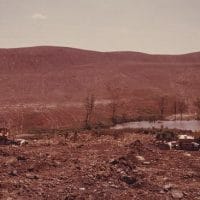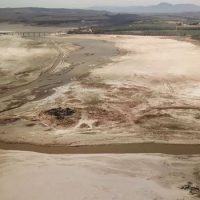-
Vladimir Vernadsky and the disruption of the biosphere
Virtually unknown in the west, the great Russian geologist and geochemist pioneered scientific study of life’s impact on the Earth.
-
What Karl Marx has to say about today’s environmental problems
Following the collapse of the Soviet Union and an economic shift in China it seemed that capitalism had become the only game in town. Karl Marx’s ideas could safely be relegated to the dustbin of history. However the global financial crash of 2008 and its aftermath sent many rushing back to the bin.
-
Canada’s dirty $20-Billion pipeline bailout
Finance Minister Bill Morneau has proposed sacrificing Canadian taxpayers to bail out an uneconomic U.S. pipeline owned by former Enron executives.An opportunity for new journalists to examine BC’s historic referendum on electoral reform.
-
Marx and nature
At the end of January 2018, the rollercoaster ride that is the Trump presidency took another unexpected turn: the leader of the free world claimed that the United States could reenter the 2015 Paris climate agreement—if the U.S. were given a “completely different deal.”
-
Canadian government to buy disastrous oil pipeline to ensure it gets built
CANADA’S federal government said today it is buying a controversial pipeline from the Alberta oil sands to the Pacific coast to ensure it gets built.
-
Eco-Marxism and deforestation
The article uses the Eco Marxist perspective to look at deforestation and the impact it has on Earth in terms of soil erosion, air pollution and the threat it places on plant and animal life.
-
Channel the panic into political action
A conversation with Andreas Malm about the impotence of postmodernism in face of climate change and capital’s role in the destruction of nature.
-
Why Geoengineering is not a remedy for the climate crisis: an ecological point of view
Massive Plantations: A Viable Means of Carbon Sequestration? A recent article in Wired offered a cogent critique of the foremost technofix put on the table as a solution for the climate crisis 1. The article, “The Dirty Secret of the World’s Plan to Avert Climate Disaster,” by Abby Rabinowitz and Amanda Simson, reveals that the […]
-
Capitalism and the Expropriation of Nature: The Strategic Discourse of Ecosocialism with John Bellamy Foster
Ecological resistance in the twenty-first century has more and more been informed by the development of Marxian ecology and ecosocialism more generally.
-
Earth’s circular economy: recycling as a law of life
On every scale, from the smallest cells to the entire planet, the essential elements of life are constantly used and re-used. Biogeochemical cycles are the basis of the biosphere.
-
Marx’s ecology: recovered legacy
While mainstream ecological theory has been dismissive of Karl Marx, serious research in recent decades has recovered some of his very important insights on ecological issues. The most systematic and thorough investigations on Marx’s ecological views are those of John Bellamy Foster and his friends from Monthly Review.
-
BP slip-up says its all about big business and the environment
It’s like something from satirical website the Onion or Australia’s Betoota Advocate.
-
Five revolutions: how bacteria created the biosphere and caused the first climate crisis
“Life is the mode of existence of protein bodies, the essential element of which consists in continual metabolic interchange with the natural environment outside them.”
-
Recycling crisis is capitalist business as usual
Recycling isn’t complicated. Households and businesses separate their recyclables from the rest of their rubbish and put them out for collection. This material then is supposed to be sorted and made into new products–a small but important contribution to sustainability in a world awash with waste.
-
Ecological destruction in the name of science
How has a science focused on capital accumulation been used to overturn tried and true models of agriculture to the detriment of the environment and indigenous livelihoods?
-
Under the cover of philanthropy: a monopoly machine at work
The long-term costs of allowing a handful of corporations to take over healthcare and agriculture in developing countries, in exchange for vaccinations and hybrid seeds sold at discounted price, will be paid by populations in the Global South once the process of monopolization is complete.
-
Roxanne Dunbar-Ortiz, Loaded & Gregg Levine on Fukushima Daichi radiation
Roxanne Dunbar-Ortiz tells us about her new book, Loaded: A Disarming History of the Second Amendment.
Then we talk with journalist Gregg Levine about his special investigation for The Nation Magazine into the deaths and illnesses afflicting U.S. sailors exposed to radiation from the Fukushima Daichi meltdown. It’s titled “Seven Years on, Sailors Exposed to Fukushima Radiation Seek Their Day in Court.”
-
In defence of Metabolic Rift Theory
One Marxist line of inquiry into environmental problems has outshone all others in creativity and productivity: the theory of the metabolic rift.
-
Biofinance
Capitalism has been the subject of too many conflicting definitions for any of the claims that follow to have any purchase on truth — understood as an adequation to the real. Beneath the numerous disagreements, however, a common substratum can be gleaned between the liberal Smithian, and the classical Marxist and Weberian positions: capitalism is a system geared at fostering accumulation for its own sake.
-
Notes from the future
What’s happening in Cape Town now might soon happen to many places in the world. To prevent socio-ecological crises like this we need to manage our resources more rationally and collectively.


